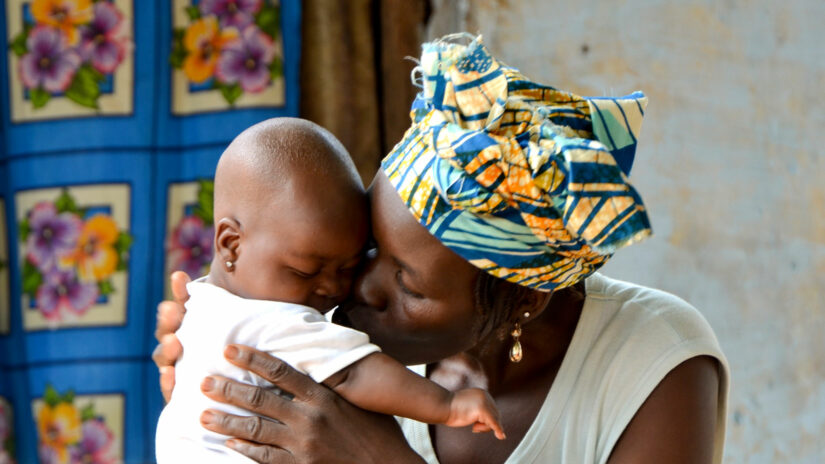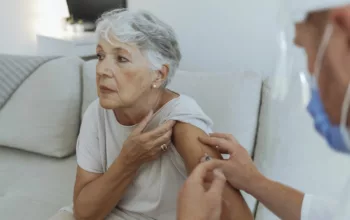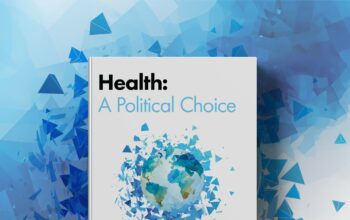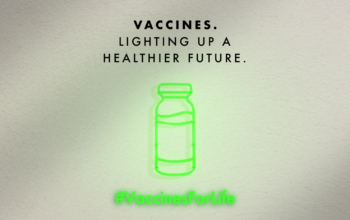Vaccines are crucial to lifelong health and future global health security

Childhood vaccination is recognized as one of the greatest medical success stories of the 20th century.
Apart from clean water, no other intervention has had a bigger impact on global public health, especially for children, their families, and communities. In fact, vaccines have done such a good job of eradicating, eliminating or controlling certain infectious diseases that many of us have forgotten, or no longer worry, that our children or loved ones might still contract diseases like polio, measles or diphtheria.
However, the global COVID-19 pandemic is a stark reminder that infectious diseases not only impact children but can also have a devasting impact on adults’ health, quality of life and mortality, as well as our economies and health systems. The need to extend the benefits of vaccination from early life to include the whole lifecycle – and adults in particular – becomes imperative.
A significant number of vaccines targeting infectious diseases in the adult population are already available, such as vaccines against influenza, herpes zoster, tetanus, diphtheria and pertussis (Tdap), pneumococcal infection, hepatitis B as well as human papilloma virus (HPV) and meningococcal vaccines for younger adults. But only 62% of WHO Member States have reported having immunization programs for adults, and coverage remains low in nearly all geographies.
The WHO’s Global Vaccine Action Plan 2011–2020 (GVAP) and Immunization Agenda 2030 (IA2030), and the United Nations Decade of Healthy Ageing recommend a life-course immunization (LCI) approach, where everyone, whatever our age or stage of life and wherever we live, can benefit from the health, social and economic advantages of vaccines. This broadening of focus beyond “paediatric vaccination programs” to “vaccination programs for all ages and all groups” is vital for future pandemic preparedness and global health security. While some progress has been made, GVAP goals remain largely unachieved and only a few countries, such as the US, the UK, and Australia, have implemented a life-course approach to immunization (LCI) in line with the 2011-2020 recommendations. The COVID-19 pandemic made it amply clear that the sick, the old and the vulnerable need a life-course approach to protection from infectious diseases.
The pandemic has also exposed other immediate concerns for childhood vaccination. In the wake of global disruption to our health and education systems during the pandemic, childhood and teenage HPV vaccination rates have dropped for the first time in 30 years, exposing millions of children around the world to infectious diseases and threatening the progress made on child mortality and morbidity over the last few decades.
This drop in routine childhood immunization rates has been further compounded by a troubling rise in vaccine hesitancy and complacency. At a time when vaccines became one of the most frequent subjects of conversation around dinner tables, inflammatory conspiracy theories and misinformation around COVID vaccines have harmed general vaccine confidence among some parents, carers and healthcare professionals.
We know healthcare professionals can play an essential role in building vaccine trust and confidence and positively influencing patient vaccine acceptance and uptake. For instance, pharmacists have played an important role in developing and implementing policies to counter vaccine hesitancy for COVID-19, which can be applied to other vaccines. Expansion of access to vaccination through community pharmacies, and other easily accessed sites, is critical for ensuring high vaccination coverage, especially among vulnerable adult populations.
We need to raise awareness among healthcare providers of the benefits of vaccination not just for their patients but also for themselves in their workplaces. For example, uptake of seasonal influenza vaccines by healthcare workers is often low, even in high-income countries, despite the fact that they are generally more exposed to the influenza virus than the general population. They risk not only getting sick with the flu, but also transmitting the infection to patients and when some of whom are particularly vulnerable because of an already low immune system.
Strengthening immunization programs is not simply about protecting individuals but about developing the capacity to protect health systems. Vaccines underpin our global health security by preventing and controlling over 30 infectious diseases, reducing unnecessary hospitalizations and controlling infectious disease outbreaks. Continued investment by the innovative pharmaceutical industry and research partners in vaccine innovation will also help improve and strengthen our global health defenses. There are currently over 100 vaccines under development, of which 81 are targeting adults.
Over the next eight years, there is much to be done to reach the ambitious goals we set for ourselves. As we witness a fast demographic transition towards an older population, as we deal with climate change and changes in disease epidemiology, the threat from deadly infectious diseases is no longer abstract. We need to encourage societies to recognize the human and economic value of healthy ageing and the crucial role of life-course immunization.
Best practices in adopting a life-course immunization approach must be widely shared. We need to study what works and adopt it fast. Our latest IFPMA benchmark report on life-course immunization compares available data and case studies, before and during the COVID-19 pandemic, supporting evidence-generation for the expansion of immunization policies.
Author






